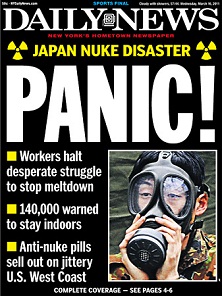 By Fernando G. Urbaneja | “Do you think I should keep my money under the mattress?” Long ago, in the early days of the crisis, it was a bizarre question. The issue now arises more frequently and with more anxiety. The trigger of this question has to do with the dynamics of economic and financial information, as fast as light, not necessarily solvent, where unverified bad news prevail over the not so bad verified ones. While rumours are traded, especially the most disturbing and gruesome ones, the facts end up disregarded. The possible or imminent bankruptcy of Greece (well-deserved and earned) has knocked down the markets several times and, in the process, has damaged the reputation of other countries with debt problems, this being a very relative concept since what is irrelevant in one phase of the cycle becomes unacceptable in another. But that's part of the landscape; the banker who sought to give credit to a client when he did not want it, refuses to give it when it is needed. And the banker always finds good reasons.
By Fernando G. Urbaneja | “Do you think I should keep my money under the mattress?” Long ago, in the early days of the crisis, it was a bizarre question. The issue now arises more frequently and with more anxiety. The trigger of this question has to do with the dynamics of economic and financial information, as fast as light, not necessarily solvent, where unverified bad news prevail over the not so bad verified ones. While rumours are traded, especially the most disturbing and gruesome ones, the facts end up disregarded. The possible or imminent bankruptcy of Greece (well-deserved and earned) has knocked down the markets several times and, in the process, has damaged the reputation of other countries with debt problems, this being a very relative concept since what is irrelevant in one phase of the cycle becomes unacceptable in another. But that's part of the landscape; the banker who sought to give credit to a client when he did not want it, refuses to give it when it is needed. And the banker always finds good reasons.
Each new activity index rate is worse than the previous one, and the assumption of a recovery of the euro zone economies loses credibility each quarter. Those devoted to make prognosis (a di
fficult and inadvisable profession that ruins the reputation of economists) position themselves in the worst case scenario. Thus, every new series of forecasts made by any research institute, international economic agency or rating agency overshadows its own previous forecasts. The haruspices of the situation obscure the expectations, often on reasonable enough grounds. Political leaders working on the recovery (by virtue and electoral interest), who steadily meet at cumbersome conferences and produce statements more generous in words than in decisions, have actively contributed to this game. They anticipate a recovery as if it were a prayer, before the desired data to support their statements reaches them. In doing so, they cause disbelief among a public that fears the worst, the opposite of what they promised, thereby contributing to the self-fulfillment of the prophecy after its formulation.
In this context, those who fear a European corralito, those who dread the day they find a silent non-operating ATM, must be left alone to their distress. They say that solving social conflicts requires twice the time it took to provoke them, meaning getting out of the crisis is not a matter of months but rather of years.
Fernando G. Urbaneja is Revista Consejeros' editor.





Tampoco perderías nada, sino todo lo contrario, por poner la versión es pañol de los artículos que dispongan de ella, ya que no cabe duda que algunos, como éste, están escritos así en el original.